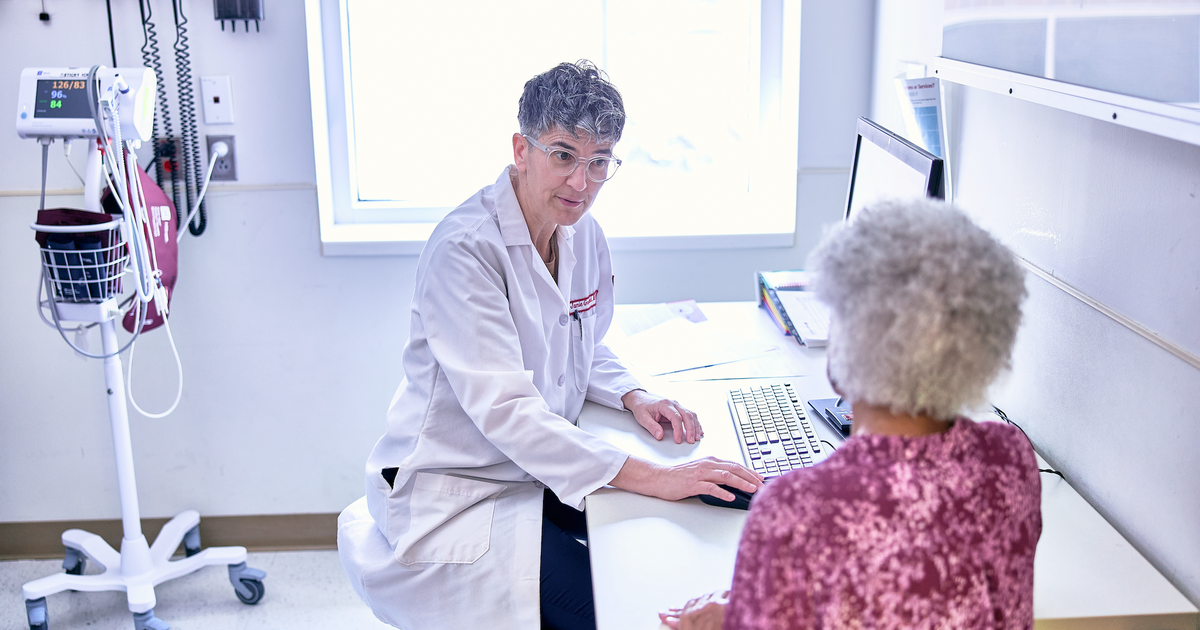Copyright phillyvoice

Chronic obstructive pulmonary disease, or COPD, is often thought of as a condition that only affects longtime smokers. In reality, the disease reaches far beyond that group. Women are disproportionately impacted, and environmental factors such as air pollution play a major role. That is a serious concern in Philadelphia, where air quality is worse than the national average. COPD affects more than 11 million adults nationwide, or about 4% of all U.S. adults, and claims roughly 142,000 lives each year, according to federal data. At the forefront of addressing this challenge is Dr. Gerard Criner, director of the Temple Health Lung Center and one of the nation’s leading experts on COPD research and treatment. “COPD has long been thought of as a smoker’s disease, but research shows that is not the full story,” Dr. Criner said. “Non-smokers, especially if they’re exposed to poor air quality or occupational health hazards, can also be at risk for COPD.” What COPD really looks like COPD is a chronic lung disease that makes it harder to breathe by limiting the amount of air that can flow in and out of the lungs. It cannot be cured, but early diagnosis and treatment can ease symptoms and slow its progress. Symptoms often include: • Frequent coughing, especially with mucus• Wheezing or whistling sounds while breathing• Shortness of breath, particularly during exercise• Chest tightness Despite these warning signs, many cases go undiagnosed, especially in women. Research shows that more women than men are diagnosed with COPD and die from the disease. Women also often experience more severe COPD symptoms than men. One reason may be that women typically have smaller lungs and airways, which can make them more sensitive to damage. This increased sensitivity may also make smoking more harmful for women, helping explain why many women with COPD have smoked less than men who develop the disease. The Temple Lung Center is home to the largest COPD research hub in the nationEach year, the Lung Center enrolls hundreds of patients in clinical trials, offering access to therapies that are reshaping the future of care.Learn more about the trials by calling 215-707-1359 or visiting the Lung Center’s clinical trial search page. “Many diseases and conditions present differently in women than in men, and COPD is one of them,” says Dr. Jamie Garfield, a pulmonologist at the Temple Lung Center. “Ongoing research shows that more women than men in the U.S. are living with COPD." How COPD is treated Several effective treatments can help people with COPD breathe easier and stay active. Care plans often include: • Medications such as inhalers that open airways or reduce inflammation• Pulmonary rehabilitation, a program that combines exercise, education, and breathing strategies• Oxygen therapy for people with low blood oxygen levels• Surgical options, including lung volume reduction procedures or, in advanced cases, lung transplantation At Temple Health, specialists tailor treatment to each patient’s needs and connect eligible patients with clinical trials that test the latest therapies. The Temple Lung Center is home to the largest COPD research hub in the nation, and can often provide patients with breakthrough treatment options before they become more widely available. Each year, the Lung Center enrolls hundreds of patients in clinical trials, offering access to therapies that are reshaping the future of care. Philadelphia’s air quality adds local urgency Although smoking is responsible for up to three-quarters of all COPD cases, long-term exposure to air pollution and other irritants is the second leading cause. That makes environment a key factor — and one that is especially troubling for residents of Philadelphia. The American Lung Association’s 2025 “State of the Air” report gave Philadelphia County an F grade for particle pollution. The metro area ranked among the 30 worst in the country and third worst in the Mid-Atlantic for short-term particulate pollution. “Air pollution, indoors and outdoors, is increasingly recognized as a driver of lung disease,” Dr. Criner said. “Living in a city like Philadelphia, where air quality ranks below the national average, means the environment itself becomes a risk factor for COPD.” The data show how widespread the condition already is. In Pennsylvania, nearly 772,000 adults — about 7.5% of the state’s population — have been diagnosed with COPD. In New Jersey, that number is about 322,600 adults, or 4.4% of residents. Advancing treatment through research The Temple Lung Center is recognized around the world as a leader in COPD research, treatment, and innovation. Under the direction of Dr. Gerard Criner, Temple operates one of the largest and most comprehensive COPD programs in the country, combining advanced clinical care with groundbreaking research. Temple’s experts have helped set global standards for COPD management, contributing to the Global Initiative for Chronic Obstructive Lung Disease (GOLD), which guides prevention, diagnosis, and care worldwide. The center also runs one of the highest-volume lung transplant programs in the United States, giving hope to patients with even the most advanced disease. “We have built one of the nation’s largest programs dedicated to COPD research,” Dr. Criner said. “Our work is not limited to treating symptoms. It is about reshaping care through clinical trials and breakthrough therapies.” Recent breakthroughs include Temple’s participation in the BREATHE-3 clinical trial, which evaluates a new bronchoscopic device designed to relieve trapped air in the lungs and help patients breathe more easily. In August, Temple treated the first U.S. patient in the study, who was able to return home the next morning following the procedure. “This trial is a key step toward expanding treatment access for patients who currently have few options,” Criner said. The future of COPD care COPD remains a leading cause of death in the United States, but with new therapies and a growing understanding of how environment and gender play a role, there is growing hope for patients. “The future of COPD care is about more than managing symptoms,” Dr. Criner said. “It is about creating treatments that allow patients to live fuller lives. Every breakthrough we achieve at Temple brings us closer to that goal.” The Temple Lung Center enrolls hundreds of patients in clinical trials each year. You can get information about the trials by calling 215-707-1359 or visiting the Lung Center’s clinical trial search page.



